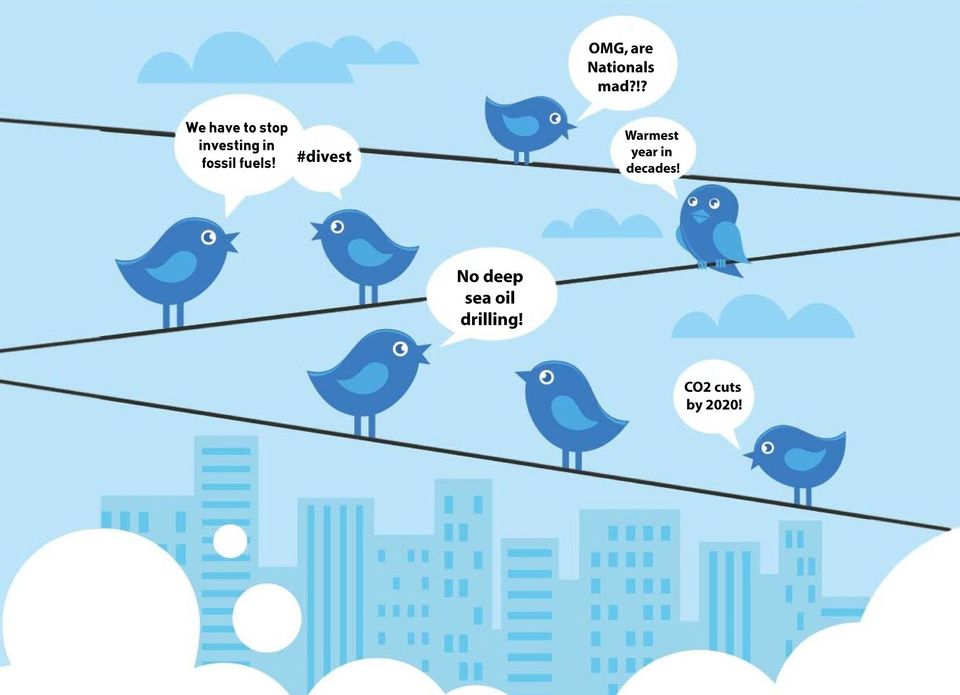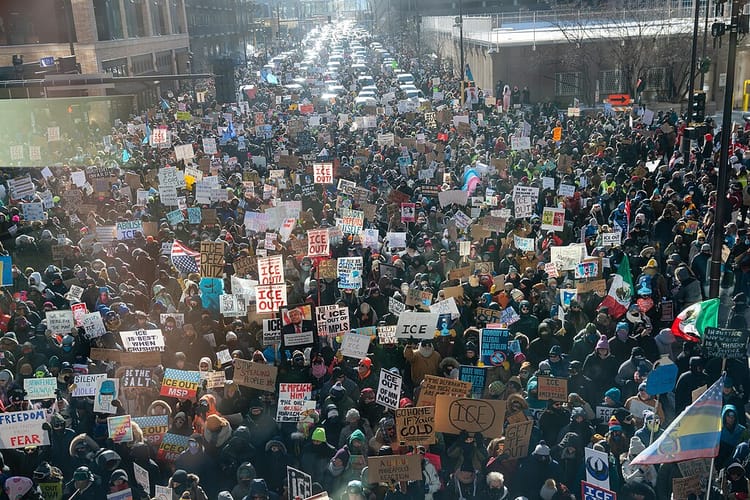Climate Must-Reads: Climate Twitter, COP27 Carries On, & More

Last night, lots of folks were predicting that we would wake up to find Twitter gone, but it still seems to be up as of Friday afternoon. Fascinating that it's taken less than a month to bring one of the loudest champions of unfettered free speech around to the idea that free speech does not equal free reach, as Musk announced today, along with the news that the app would be burying any tweets deemed "hateful" or "negative." It's starting to feel like Space Karen doesn't actually like free speech after all!
Which of course comes as no surprise for any journalist who has ever covered Musk or his companies. I reported on Tesla back in the early 2000s when Musk was pulling off a wholesale theft of the company's founding narrative. He wasn't real fond of journalists back then, but he didn't actively start trying to destroy journalism until reporters started to cover him and Tesla the way they did any other CEO or company: critically. Suddenly, Tesla whistleblowers were talking to Reveal and CNBC about worker safety violations, and reporters were covering their environmental violations and misleading claims. For the last 10 years or so, Elon has spent a whole lot of time absolutely enraged at journalists, discouraging the public from trusting reporters, and suggesting various systems aimed at further discrediting the press.
That's why I don't really buy the story that Musk is just bumbling his way through burning Twitter to the ground. Destruction has to be the goal for it to move this quickly, and it seems entirely plausible to me that he would spend $40 billion to shut journalists up. It's unclear whether Twitter will stick around; if it does shut down, it will dramatically curtail the flow of climate information of various kinds, from critical real-time information during extreme weather events to youth organizing to real-time debunking of disinformation.
Following are some stories worth reading on the relationship between Twitter and climate journalism, Musk and climate, and all points between:
- Twitter Chaos Endangers Public Safety, Emergency Managers Warn, by Andrea Thompson for Scientific American
- Elon Musk Isn't a Climate Hero, by Molly Taft for Earther (this week Emily Atkin published a similar piece, The Climate Case Againt Elon Musk, in Heated as well)
- What Is Mastodon and What Does It Mean for Climate Twitter? by John McCracken for Grist
- Experts Fear a Deluge of Climate Misinformation on Twitter, by Kristoffer Tigue for Mother Jones
COP27 Kicks Into Overdrive
COP27 was supposed to close today, but will continue over the weekend, with a tentative promise to release an agreement by Monday. Delegates are still arguing primarily over loss and damage, and the exact language around commitments to phase out the world's dependence on fossil fuels. The EU offered to create a fund for loss and damage if the rest of the world could get on board with stronger language around reducing emissions, but so far the drafts don't appear to be moving in that direction. India has been pushing for language to shift from promising a "phase down of coal" to a "phase down of fossil fuels," and the EU delegation wants to see the same, while Saudi Arabia and the U.S. are dragging their feet (reminds me a lot of what we saw in negotiations over the most recent IPCC report, with the U.S. and Saudi tagteaming on a push to emphasize the benefits of carbon capture and downplay the need for mitigation).
Bloomberg has been doing an excellent job covering the negotiations, and is making its COP27 coverage paywall-free til end-of-day today, so head over there to catch up!
One story that really jumped out to me as an anomaly of the Bloomberg team's otherwise truly helpful coverage of COP27 was entitled "US Fossil Fuel Pledge Seen As Political Dynamite." In it, various Republican strategists and one former Clinton advisor are quoted as saying that any ambitious pledge in Egypt from the U.S. would put Biden in hot water back home. It reminded me so much of the various threats around Kyoto, and then Copenhagen, both of which were also heavily monitored, attended, and influenced by fossil fuel delegates. I also wondered why none of Bloomberg's COP27 reporters thought to question this received "wisdom" from strategists like Mike McKenna, who's identified in the piece only as a "Republican Strategist," not as a lifelong oil and gas lobbyist, whose previous clients include Koch Industries and the American Fuel and Petrochemical Manufacturers. It's not surprising that Mike thinks "The idea of giving American taxpayer cash to foreigners because of some imaginary damages will be toxic to voters," he's literally paid to think that and to get as many other people thinking it as possible. Why give this guy air time and not question his statement, or look into whether any evidence exists to back up his claim? The next paragraph includes a claim from another purported "expert," Paul Bledsoe, a former climate aide in the Clinton White House now with the Progressive Policy Institute, who focused more on the language around phasing out fossil fuels, noting that lumping fossil gas in with oil and coal would be problematic for the Biden administration. “The EU plan is full of political danger, and unless substantially revised before US agreement, has the potential to become a major attack issue for Republicans against Biden in 2024,” Bledsoe is quoted as saying. “Does the EU really want the return of a GOP President and US Trump-style climate isolationism?” There's a lot happening here that needs to be unpacked and it would have been great to see the Bloomberg team do that. First of all, predicating U.S. policy on what Republicans may or may not run attack ads on seems like a fool's errand. It doesn't matter what's in any climate deal Biden signs off on, Republicans will attack it. That's a terrible reason to do, or not do, anything. Secondly, how is there zero mention here of the fact that Bledsoe has been a lifelong booster for natural gas? He is an architect of the "all-of-the-above" energy policy, leaning heavily on gas, that centrist Democrats have been pushing for decades. Whether or not that's actually the best way forward on climate is perhaps not up to these reporters to decide, but failing to note the mounting issues with methane or look into how Dem voters are actually voting with respect to natural gas or disclose Bledsoe's decades-long blind devotion to "natural gas" are choices that leave readers with the conclusion that moving away from gas would in fact be a dangerous political move for Democrats.
I'm going to assume that on what was supposed to be the last day of a COP that's now being dragged out through the weekend, folks were just tired. But due diligence, and questioning the agendas and biases of those you're quoting as experts is really important in times like these, and it was disappointing to see this amongst the rest of the coverage.
**Update: As of Saturday morning, the U.S. has backed the creation of a loss and damage fund. That's huge news!
Methane Rule, EPA Suit, and Effective Altruism
Other stuff to be aware of in the climate universe this week:
- The EPA's improved methane rule is out. The methane rule has been strengthened, but advocates warn that without a well-resourced enforcement mechanism it won't matter. Sharon Wilson, a campaigner with Earthworks who has spent the past several years documenting methane emissions in Texas's Permian Basin and other active oil and gas patches around the country, said: "Without resources to fund an army of regulators to keep this industry honest, these rules will fall short and companies will continue to hide the true cost of fossil fuel extraction." Rhode Island Senator Sheldon Whitehouse, who proposed the strengthened rule, echoed Wilson's concern about the need for enforcement.
- EPA Greenhouse gases and TSCA suit: Legendary climate scientist Dr. James Hansen has teamed up with Carbon Majors report lead Rick Heede, retired EPA scientist Donn Viviani, climate psychiatrist Lise Van Susteren, and nonprofit Climate Protection and Restoration Initiative to sue the EPA. The suit comes on the heels of EPA's denial of the same group's petition earlier this year asking it to list and regulate greenhouse gases as pollutants under the Toxic Substances Control Act.
- Media and social media are abuzz with takes on the Effective Altruism movement in the wake of the collapse of cryptocurrency exchange FTX. Kate Aronoff connects the dots on Effective Altruism and climate over at The New Republic. "In the case of crypto, especially, amassing wealth has tended to come with a massive carbon footprint," she writes. "Bitcoin mining using so-called proof of work operations is extraordinarily carbon intensive. Shuttered coal and gas-fired power plants in the United States have surged back to life to mint cryptocurrency, sparking pushback from lawmakers in New York and elsewhere. The practice uses more electricity than the country of Norway and its 5.3 million inhabitants." And later: "Though pollution from fossil fuels accounts for one in five deaths worldwide, E.A. enthusiasts could undoubtedly offer a lengthy explanation as to why more emissions are ultimately justified in the name of battling intergalactic genocide."





